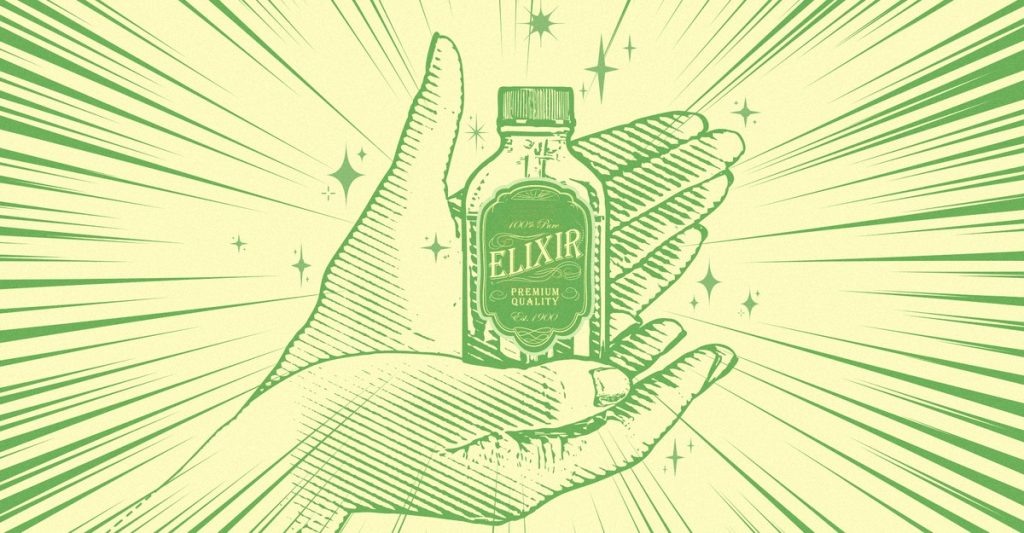The Legacy of Lydia Pinkham and the Rise of Patent Medicines
In the heart of 19th-century Massachusetts, Lydia Pinkham emerged as a pioneer in the realm of women’s health with her iconic tonic, a concoction that would leave an indelible mark on the era of patent medicines. Her story began in 1873 when she crafted an herbal elixir aimed at alleviating women’s health issues, such as menstrual pain and uterine problems. Pinkham’s tonic, with its distinctive dirt-brown hue and alcohol content ranging from 18 to 22 percent, was marketed as a miraculous remedy for "women’s weaknesses." Her approachable image, plastered on labels and advertisements, made her a household name, evoking trust and familiarity.
The tonic’s success was not an isolated phenomenon but part of a broader trend. The 19th and early 20th centuries saw the rise of patent medicines, concoctions created by a mix of chemists, housewives, and entrepreneurs, each promising to cure a myriad of ailments. These remedies, often shrouded in mystery, were aggressively marketed and widely consumed, despite their dubious ingredients. From alcohol to dangerous substances like cocaine and morphine, patent medicines thrived in an era of minimal regulation, capturing a significant portion of the advertising landscape.
Transition to Dietary Supplements: A Regulatory Shift
The tide turned in 1906 with the enactment of the Pure Food and Drug Act, leading to the establishment of the FDA. This regulatory body clampdown on unregulated health products, signaling the decline of patent medicines. However, the spirit of these remedies found new life in the form of dietary supplements. Unlike pharmaceuticals, which required rigorous testing for safety and efficacy, supplements slid through the regulatory cracks. The 1994 Dietary Supplement Health and Education Act further cemented their status, exempting them from FDA oversight and allowing manufacturers to operate with minimal scrutiny.
This shift marked a significant change in the industry’s landscape. Supplements, now a multi-billion dollar market, are sold with claims that often lack scientific backing. While some may offer genuine health benefits, the industry’s honor system allows products to be marketed without proving their efficacy or safety. The FDA only intervenes post-market, after potential harm has occurred, highlighting a system that prioritizes consumer trust over rigorous testing.
The Growth of the Supplement Industry: Marketing and Influence
The supplement industry’s ascent is a tale of savvy marketing and cultural alignment. What were once traveling medicine shows and trading cards have evolved into influencer endorsements and podcast sponsorships. The wellness culture of the 21st century has embraced supplements as a quick fix for modern ailments, from weight loss to stress relief. This alignment is evident in the proliferation of products like detox teas and powdered greens, which promise health without the hassle of traditional medical care.
The industry’s influence extends beyond adults, targeting teenagers with products that play on their insecurities. Marketing strategies reminiscent of the patent medicine era, using relatable complaints and preventive care narratives, continue to resonate. This echoes the historical appeal of patent medicines, illustrating how the essence of these remedies has persisted, albeit in modern packaging.
Risks and Limited Oversight: A Historical Echo
Despite advancements, the supplement industry faces criticisms akin to those of its patent medicine predecessors. The lack of oversight has led to instances of dangerous additives, such as methamphetamine analogues in workout supplements. These risks are exacerbated by the FDA’s passive approach, which only acts after harm is done. Experts argue for stronger regulations, yet the industry’s political influence, as seen in Robert F. Kennedy Jr.’s advocacy, poses a challenge.
Kennedy, a vocal anti-vaccine activist, champions supplements while criticizing FDA regulation. His potential role in overseeing the FDA raises concerns about the erosion of even the minimal oversight currently in place. His involvement, including a trademark application for MAHA-branded supplements, underscores the potential for further industry expansion under lenient regulation.
Implications of Kennedy’s Involvement: Future Outlook
The confirmation of Robert F. Kennedy Jr. as a health official could herald a new era for the supplement industry, characterized by reduced oversight and increased permissiveness. This scenario raises alarms about the proliferation of adulterated and mislabeled products, as well as the potential for unchecked industry growth. Kennedy’s influence could further embed supplements into American health culture, despite the inherent risks.
The historical parallels are striking. Just as Lydia Pinkham’s tonic captured the trust of many, today’s supplements are favored by millions, supported by a wellness movement that often overlooks scientific evidence. The industry’s trajectory, now intertwined with political influence, suggests that the legacy of patent medicines is far from over. As the FDA’s role diminishes, the future of supplements may see a resurgence of the very issues the agency was created to address—underscoring a cycle that bridges past and present.


